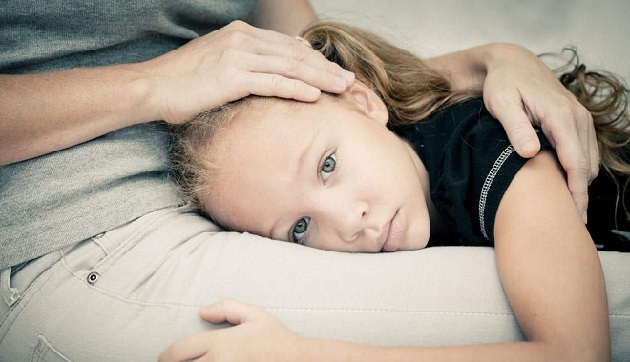Children and the Burial Service (Maria Dimitriadou, Pedagogue)
10 Μαΐου 2017
[Previous post: http://bit.ly/2qoi4pi]
Children should be given the opportunity to grieve as they wish, without any pressure upon them. It’s important for them to understand that these feelings are natural, both for them and those around them. This is why the other members of the family shouldn’t avoid grieving for the deceased in front of children in an effort not to burden them emotionally. Such behavior may have the opposite effect, since the children may conclude that the others cared little for the deceased. It’s also important for children to realize early on the importance of tears and to feel comfortable with these feelings of sorrow, so that they don’t see them as a sign of weakness.

Very often, for the first few hours after a death has occurred, a house is in turmoil and children are forgotten. It’s very important however, that some calm person, very close to them, should be with them. Apart from encouraging children to express their feelings about the event in their own words, it’s also important that they should be involved in the whole process of the burial. Not that they should be forced to participate, but simply encouraged to do so. Participation contributes in multi-faceted ways with processing grief and helps children to emerge normally from it.
While the deceased is still in the house, children who have been prepared in an appropriate manner by the grown up looking after them, can approach the dead body. Most children wonder what death’s like, what happens when a person dies, where they go, if they have any needs. Going in to see the dead person can reassure children, especially when they haven’t yet acquired a healthy image of death. The grown-ups should focus on the calmness and serenity of death, as well as on the good state which the deceased is now in (for example, with Christ, with other departed members of the family and friends).
Thereafter, the funeral service offers the best opportunity to both grown-ups and children to take their leave of the deceased. Modern psychology has found that a smooth process of saying farewell to the departed is critical for people’s spiritual and emotional development, an absolute necessity, in fact. In the first place, the location where the funeral service takes place, the church, should be familiar surroundings where they themselves have probably experienced communication with the Lord through prayer. This makes it easier for children to give up their pain and sorrow to God in the same way. The church is also a locus which reminds them of the hope of the Resurrection, which may assuage the children’s pain, depending on their spiritual state and the extent to which they’ve been prepared. Besides, the funeral offers a place where the emotional charge occasioned by the loss can be freely expressed, within a climate of mourning and this allows the children to take part, too. The fact that we take our leave from the deceased in a community spirit warms and comforts the mourners and is a positive contribution to the handling of their grief.
Within this environment, the last kiss is given to the deceased, allowing children to say farewell to the person they loved. On this point, the grown-ups should have prepared or reminded the children about the difference in temperature which they’ll feel when they kiss the dead face. It can be pointed out to them that this coldness is a sign of death. Life is warm, but death is cold. Even at an early age, children needn’t be terrified, since they already have experience of warm and cold things. The last kiss helps with the process of understanding death and acceptance of the reality of it on the part of children. Finally, the burial itself also contributes towards this. Nevertheless, this is a point which children often find difficult, since there seems to be a contradiction between the burial and faith in life after death. It could be explained to children at this point that we humans consist of a body and a soul. The body enters the earth, returns to it and dissolves, whereas the soul is free to make its way to Christ.





